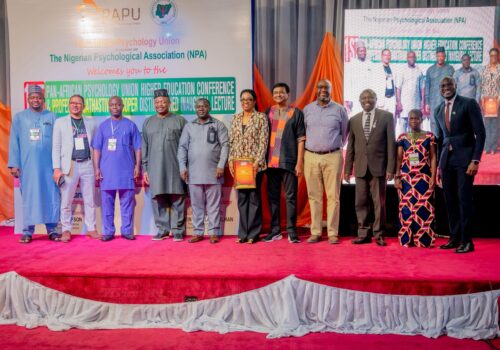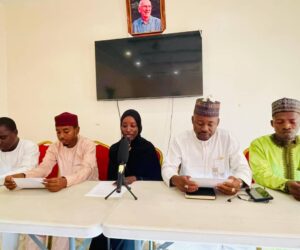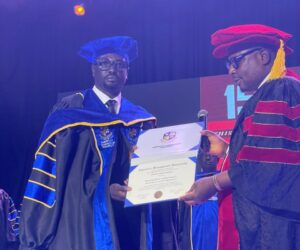Psychologists from different African countries have gathered in Abuja for a 5-day conference to reflect on and review the tertiary education curriculum that is presently reflecting Euro-American paradigm and theories.
Speaking Thursday in Abuja, during the opening ceremony of the first Pan-African Psychology Union (PAPU) Higher Education Conference, with the theme: “Psychology education in Africa: Challenges for cohesion and development,” the President of (PAPU), Prof. Andrew Zamani, said the continent is getting overwhelmed by development challenges that it can no longer afford to accept foreign solutions to Africa’s problems.
He said, while looking at the curricula they teach in various African universities, examining their relevance to the continent’s current challenges, it is high time all African governments took African psychologists seriously by ensuring the psychologists, “who have offered themselves for more than 50 years to be partners in development should be entertained, accepted and given the pride of place in the next movement.”
He said: “We consider issues of development, both for ourselves as an organisation, for our member countries as well as for individual psychologists. Today we realise that it will be an exercise in futility if we do not make room for posterity and the posterity is here. Today, you have gathered in this room, lecturers and students. You are practitioners and friends of psychology.
“Therefore, we believe in a common agenda setting and vision. We have gathered here to really look at issues that will lead us into the next dispensation. That is a vision that makes psychology truly relevant to humanity. In Africa, the psychology that we have patronised is Euro-American. The theories we have taught, the subjects that we have treated in our various curricula are crafted around the Euro-American paradigm.
“It is very difficult to mainstream psychology into the African Union’s development agenda. The case in point is the failure of many African countries to meet the targets of the Millennium Development Goals of 2015. Now the United Nations has set another agenda, the Sustainable Development Goals for 2030. We believe that one of the reasons why our nation failed to meet these targets is because psychology’s contribution was not prominent in the pursuit of this agenda.
“We have come up here in Abuja, Nigeria to say that we have the knowledge, we have the skills, we have the resources, the human resources and even the material resources, to get involved and to make a difference.
“So, while looking at the curricula that we teach in various African universities, examining their relevance to our current challenges, we are also saying that it is high time all African governments took us seriously by ensuring the psychologists who have offered themselves for more than 50 years to be partners in development should be entertained, should be accepted and given the pride of place in the next movement.
“This is one of the issues. The second issue is the fact that we are getting so overwhelmed by development challenges that we can no longer afford to accept foreign solutions to our problems. I’ll give you an example. Many years ago, some of our governors, especially the northern governors, did tell us on television that the way they were dealing with the trauma arising from Boko Haram invasion or insurgency in the northeast was by inviting American psychologists to deal with the problem. “
He added: “Now, I make bold to say that the most proficient professor of psychology or practitioner of psychology in the US has less than 40% capacity to treat trauma in Nigeria or to treat trauma in Africa.
“This is because we have a context, we have a culture, and you know in this culture there is a language, and every language has spirit. Therefore, that assumption was a false assumption and it was a misplaced expectation. So ever since, we have risen to the occasion and we have said yes, our brothers in all other parts of the world, they have the knowledge and we are glad to accept their role in capacity building, but the services will be delivered by us.
“This is the reason why we are here, to check the curricula of respective African universities. What do they look like? How do they look like? What are the gaps? In what way do they meet current needs? And how can we project for our respective countries the solutions for the emerging problems, which of course sometimes we see but we cannot predict how they evolve.
“We are here to look at all of these issues and to plug the gaps and to rise with a solution that will be defined in what I call basic minimum academic standards. Now if that happens, this is what we are going to sell to the regulatory agencies of our respective countries that are in charge of tertiary education. Now the expectation is that we will proceed with the kind of training that meets needs, training that solves problems, and by so doing, psychology will occupy a prime place in the development agenda of the African Union.
“Now having said that, we want to break ground to ensure that the people that we train today are brothers and sisters, not in skin, not only in heart, but in their commitment to a common cause. So we hope that the agenda that will evolve, with regards to a common curriculum, would enable governments in different countries to accept psychologists that are African. So, we will be working with the African Union. We will be working also with the regional development commissions in Africa to ensure that there is a portability of the profession.
“So a psychologist that is trained in Nigeria should be accepted in South Africa, a psychologist that is trained in Ghana should be accepted in South Africa, in Botswana, in Egypt, in Mauritania, in Tunisia, in every place. This is the future we are creating for all of you, those of you who are students. Now I take this opportunity to call on our lecturers to rise to this challenge.
We have rested for too long. There is no more time. You have to rise and to be counted.”
Also speaking, the Chairman of the conference, Prof Sathastivans Cooper, who is also the founding president of PAPU, and a former president of the Psychological Society of South Africa and also a former president of the International Union of Psychological Science, said the issue of Euro-American education curriculum will be a standing topic until African psychologists achieve a psychology that is relevant to the continent’s needs.
In her keynote address, the Secretary General of the International Union of Psychological Science, Dr. Ava Thompson, said the conference critical for the development of African Psychology Education and Training (PET).
“African PET and African psychology will in turn have a significant impact on the future of global psychological science. Specifically, it will affect our capacity to transform PET and realise the vision of a global psychology that reflects the multiplicity of psychologies and serve all of humanity as we co-create our shared future,” she said.








